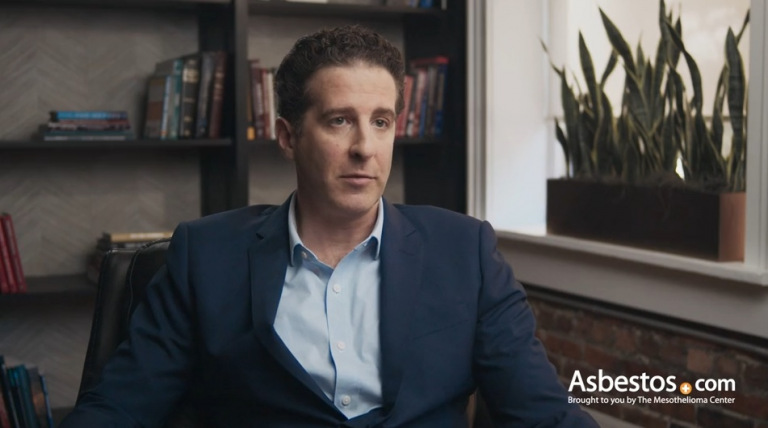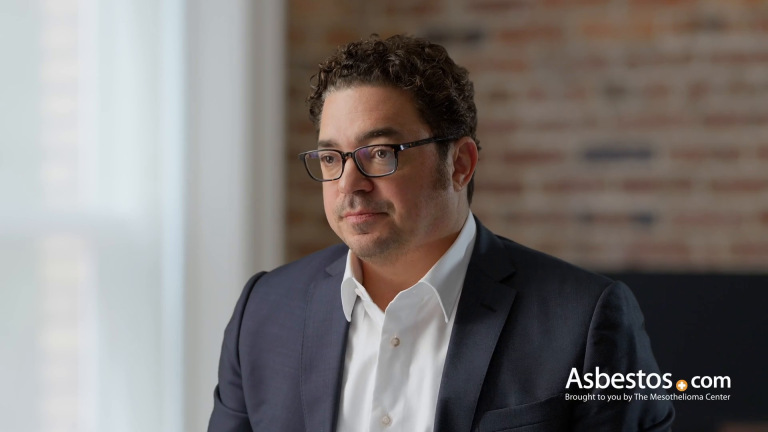Mesothelioma Settlements & Verdicts
The average mesothelioma lawsuit settlement ranges from $1 million to $2 million. The average trial verdict ranges between $5 million to $20.7 million, according to latest Mealey’s Litigation Reports. Mesothelioma settlements and verdicts may help patients and their families cover medical costs, lost income and additional expenses.
Mesothelioma Settlements vs. Verdicts: Understanding the Differences
Mesothelioma settlements and verdicts are types of compensation awarded in mesothelioma lawsuits that help cover medical bills and treatment costs, lost wages due, pain and suffering, funeral costs and other expenses. A mesothelioma settlement is an agreement between parties to avoid going to court and typically results in quicker compensation. Jury verdicts may offer higher compensation than settlements but take longer and carry more risk.
Despite differences, both help people cover their medical expenses and lost wages. The majority of asbestos cases are settled. Legal experts explain settlements are quicker and carry less risk, though payouts are usually smaller.
| Settlement | Verdict | |
|---|---|---|
| Payout | Usually smaller but more certain. | Often larger but not guaranteed – can be appealed or reduced. |
| Risk | Lower – outcome is more predictable. | Higher – outcome is uncertain and could result in no compensation. |
| Legal costs | Lower – avoids trial expenses. | Higher – includes trial-related costs and time. |
| Speed | Faster – provides compensation more quickly. | Slower – can take years to reach a decision. |
| Control | More control over the outcome through negotiation. | Less control – decision is up to the judge or jury. |
| Privacy Protection | Settlements are usually confidential. | Verdicts are often made public. |
While an asbestos verdict could be more substantial, judge or jury awards are uncertain and unpredictable. Trials can take years and involve additional costs and efforts. Verdicts often lead to higher payouts, but defendants can appeal. Amounts awarded to plaintiffs can later be reduced or overturned.
A mesothelioma payout is what you get after paying attorneys’ fees and costs. Your mesothelioma lawyers will describe this information in your retainer agreement.
Average Mesothelioma Settlement & Verdict Amounts
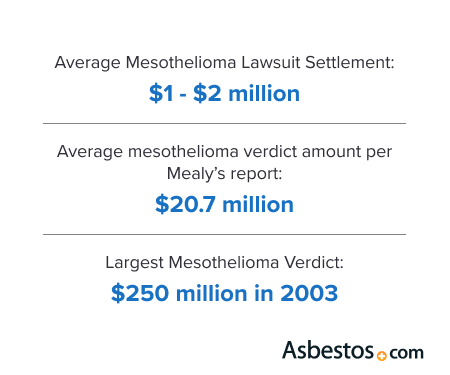
The average mesothelioma settlement amount is between $1 million to $2 million. The average mesothelioma trial verdict is $20.7 million, according to the 2024 Mealey’s Litigation Report. Settlement amounts differ for each case. They depend on specific details and circumstances. Many people with mesothelioma and their families have received settlements or jury awards worth millions of dollars.
“Because settlements provide compensation faster than lawsuits, they may be a more immediate solution to pay expenses,” says Joe Lahav, a lawyer and Asbestos.com legal advisor. “I’ve seen verdicts typically result in higher amounts of total compensation, but the majority of lawsuits are settled before trial.”
Additional forms of financial assistance exist for many mesothelioma survivors. Examples include asbestos trust fund payouts from bankrupt companies and VA claims for veterans. Talk to an attorney to evaluate the best options for you and your family.
Our goal is always going to be to exceed a million dollars in every mesothelioma case that we have. Unfortunately, not every case is a seven figure case. There are some cases that are very difficult. Either the person really can’t figure out how they were exposed to asbestos. Maybe they came to the United States from a foreign country later in their life.
Maybe the exact defendants that they were exposed to are bankrupt, and they’re only gonna get a percentage of what they should have gotten, if the company was not bankrupt. But by and large, we are trying to get north of a million dollars. And as far north as possible, but, it’s case by case.
Factors Influencing Mesothelioma Settlements and Verdicts
When you file an asbestos claim, factors such as medical expenses and lost wages, case strength and jurisdiction will affect your potential settlement or verdict amount. A defendant’s litigation history can also play a role. If a defendant has settled or lost cases, they may want to settle quickly to avoid another trial.
Mesothelioma lawyer Samuel Meirowitz of Meirowitz & Wasserberg explains, “What certainly helps in determining the value of a [mesothelioma] case is the work history of the person that’s sick. The most important part of the process is taking down an occupational history and asking all the right questions in terms of what work was done, and what products were used.”
Factors Affecting Average Mesothelioma Settlements
Speak with your attorney about factors affecting your asbestos settlement or trial claim. Each mesothelioma case is different.
Top asbestos law firms prepare well for court, knowing a strong case improves settlement outcomes. “We’re prepared to take every one of our cases to trial. A very small percentage, though, ever get to a verdict,” explains Dan Kraft, a mesothelioma attorney at Meirowitz & Wasserberg.
Use our calculator to quickly understand what compensation you may be eligible for and understand your rights — all at no cost to you.

What Can You Expect From the Asbestos Settlement Process?
Filing an asbestos lawsuit is a complex process involving multiple steps. Your first step is to contact an experienced mesothelioma lawyer. Your lawyer will manage the process for you and guide you through each step.
Your attorney will help you gather evidence detailing your asbestos-related diagnosis. After filing your lawsuit, the defendants will have 30 days to respond. Some may offer a quick settlement, while most deny liability and fight the claim.
Next is the discovery process, when lawyers on both sides collect evidence to build their cases. Litigation can take several months or even years to complete. Your attorney will help you weigh your compensation options before accepting or rejecting a settlement offer.
Families may also pursue compensation through a mesothelioma wrongful death claim if a loved one has passed away from the disease. These claims are filed by surviving family members and follow a similar legal process as personal injury lawsuits. A wrongful death settlement can help cover funeral expenses, medical bills and the loss of household income or companionship.
Is Accepting an Asbestos Settlement the Right Choice?
Choosing to accept a settlement offer is a personal decision you and your family will make together with the guidance of your experienced, skilled attorney. Your asbestos attorney can provide valuable insights, ensuring you receive a fair amount.
Pleural mesothelioma survivor Kim Madril tells us deciding what the right choice was for her family was challenging. But she says her lawyer’s support was invaluable. “Throughout the whole process, it was always like, ‘Kim, is this okay with you?’ Which I appreciated. He’d say, ‘You know, this is what I’m recommending, but ultimately it’s up to you.’”
In the end, Kim says a mesothelioma settlement was the right choice for her children, her husband, and herself. Kim says the benefits were “beyond anything I’d ever hoped before.”
“I mean, really it was. I made a point because I stood for something I thought was right,” Kim said. “And I ended up with some money. I ended up with a bit of security.”

Access mesothelioma compensation through trust funds, settlements or travel grants.
Get Financial Help NowLatest Mesothelioma Lawsuit Settlement and Verdict Updates
For the past 5 years, between 3,500 and 4,100 asbestos lawsuits have been filed in U.S. courts each year, according to the consulting firm KCIC. Most of these claims are settled privately before reaching a jury trial.
Status of Asbestos Lawsuits and Settlements
- June 2025: The family of a former maintenance worker from Chatham, England, received a six-figure settlement after his death from mesothelioma. Michael worked around asbestos for years without protective gear while employed at B.E.W Auto Products Ltd. His exposure came from cutting asbestos roof sheets and cleaning dusty work areas. The company admitted fault.
- May 2025: A Louisiana jury awarded $3 million to the family of a 72-year-old New Orleans mother who died from mesothelioma. Jeanine Henderson passed away from the disease after a lifetime of using Johnson & Johnson’s baby powder. Attorneys proved that Henderson’s death was directly linked to her use of the talc-based product. Her family’s legal team presented clear evidence that J&J was aware of the potential dangers of asbestos contamination but hid the risks.
- April 2025: A U.S. bankruptcy judge turned down Johnson & Johnson’s $10 billion baby powder settlement plan. The proposal aimed to resolve more than 60,000 ovarian cancer lawsuits. The deal wouldn’t have affected any remaining mesothelioma lawsuits. Plaintiffs say the company’s talc products contain asbestos and can cause cancer. J&J plans to fight the outstanding talc lawsuits in court.
- January 2025: A jury in a mesothelioma case against Johnson & Johnson attempted to award $22 million to Michelle Felton, executor of Michaeleen Lee’s estate, despite J&J winning the case. The jury believed J&J was negligent and misrepresented the safety of its talc products, but a post-trial challenge may be possible..
These recent settlements and verdicts highlight the significant legal and financial consequences companies responsible for asbestos exposure face. They also call attention to the ongoing risks linked to asbestos-related diseases.
Notable Mesothelioma Lawsuit Settlements and Verdicts
Exact mesothelioma settlement amounts are kept private, and confidentiality agreements bind claimants. However, some mesothelioma lawsuit settlement amounts can become public on occasion.
- Metal Worker: $250M Verdict
-
U.S. Steel was ordered to pay $250 million in 2003 to the wife of a former steel worker who died of mesothelioma. U.S. Steel reached a post-verdict settlement for an undisclosed amount believed to be substantially less than the trial award.
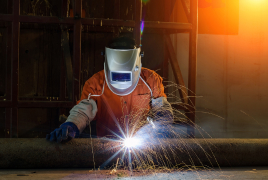
- Talc Consumer: $117M Verdict
-
A jury awarded damages to Stephen Lanzo III and his wife totaling $117 million in 2018. A jury found Johnson & Johnson and Imerys Talc America liable for his mesothelioma. Lanzo bought their asbestos-contaminated talcum powder from 1979 to 2003.

- Navy Veteran: $70.8M Verdict
-
A California jury awarded $70.8 million to U.S. Navy machinist Robert Whalen in 2014. Whalen claimed he developed mesothelioma working with John Crane’s asbestos-containing products. He served for 26 years in the Navy.

- Drywall Worker: $13.4M Verdict and $75K Settlement
-
A drywall worker received a $13.4 million verdict and $75,000 in settlements in 2020 from a lawsuit filed in Washington. Drywaller Raymond Budd said he developed mesothelioma from working with multiple asbestos-containing products. Among them was Kaiser Gypsum’s asbestos-containing joint compound.

- Mechanic: $630K Settlement
-
The family of a mechanic from Redding, California, received a $630,000 settlement in 2018. It resolved a wrongful death lawsuit over asbestos-related lung cancer. Exposure to asbestos brakes, clutches and gaskets led to their loved one’s mesothelioma.
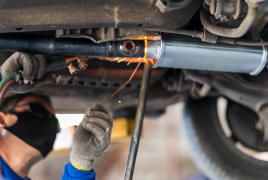
Settlement amounts can vary widely, often reaching millions of dollars. Your case is unique. Working with an experienced mesothelioma attorney can help you better understand and navigate the complexities of asbestos litigation to maximize your settlement potential.
Common Questions About Mesothelioma Settlements
- What is the average asbestos settlement amount?
-
The average asbestos settlement ranges from $1 million to $2 million, depending on the strength of the asbestos lawsuit, the evidence of exposure and companies involved.
- Are mesothelioma settlements taxable income?
-
Mesothelioma settlements are not considered taxable income.
Answered By: Carl Money, Mesothelioma Attorney, Nemeroff Law Firm
- How much does an attorney cost?
-
It does not cost anything to hire a mesothelioma attorney. A mesothelioma attorney represents you on a contingency fee basis (no win, no fee) so that you have no out-of-pocket costs. The mesothelioma attorney only receives a fee if they obtain compensation for you and your heirs.
Answered By: Carl Money, Mesothelioma Attorney, Nemeroff Law Firm
- How are mesothelioma settlements paid out?
-
Mesothelioma settlements are paid out once the asbestos company has made an offer and you have accepted it.
Answered By: Carl Money, Mesothelioma Attorney, Nemeroff Law Firm
- How long does it take to receive a mesothelioma settlement check?
-
Generally, it takes 1-3 months to receive a settlement check once you have accepted the offer to settle with the asbestos company.
Answered By: Carl Money, Mesothelioma Attorney, Nemeroff Law Firm

